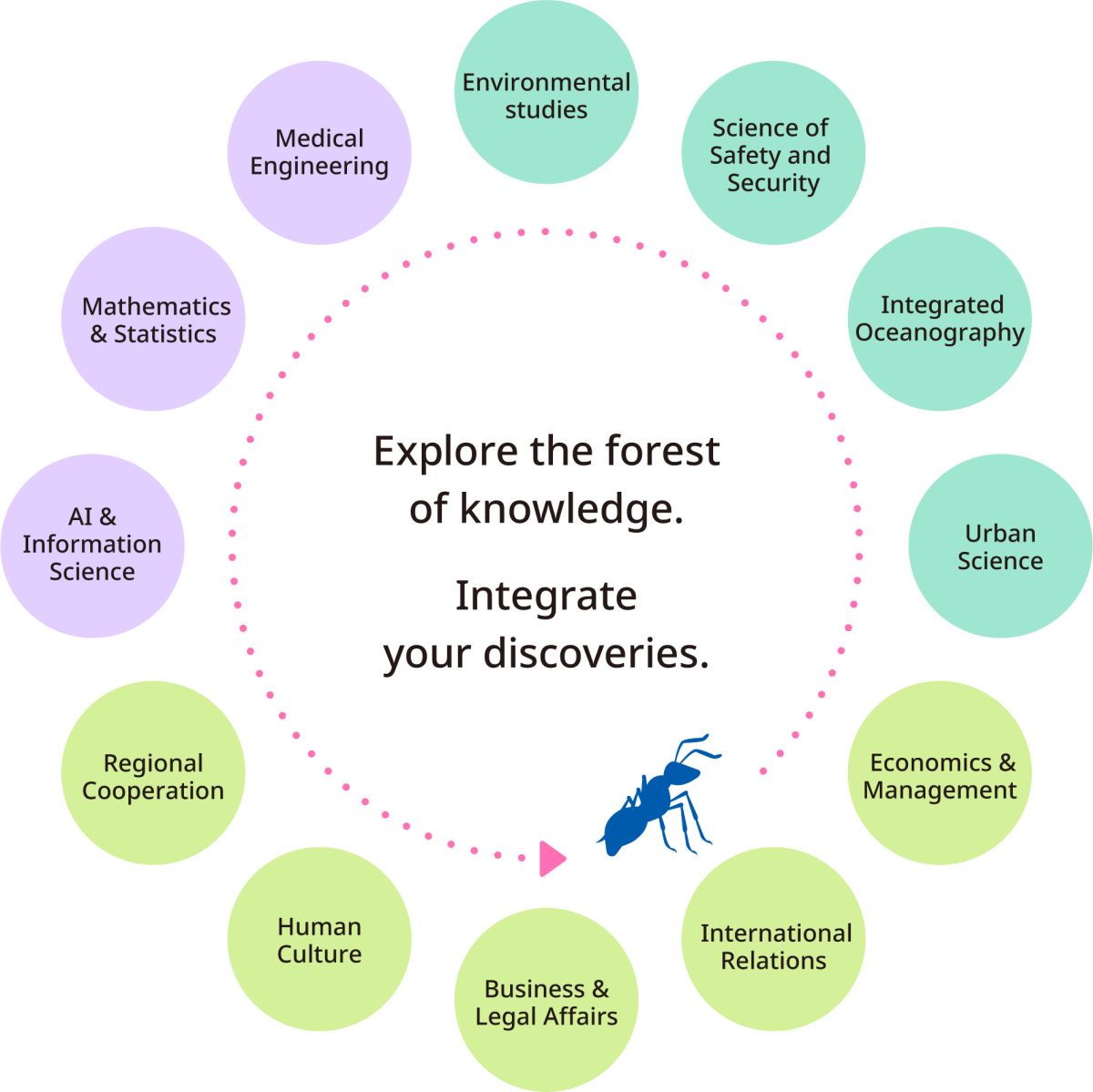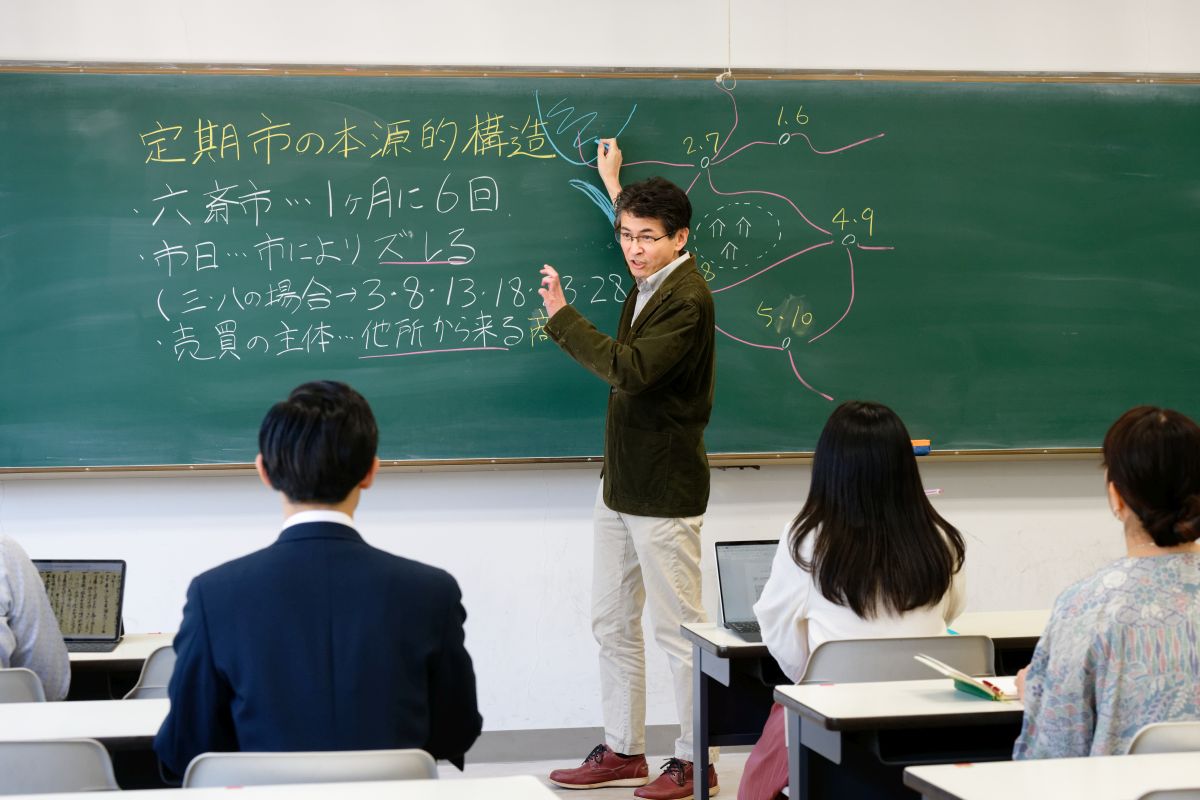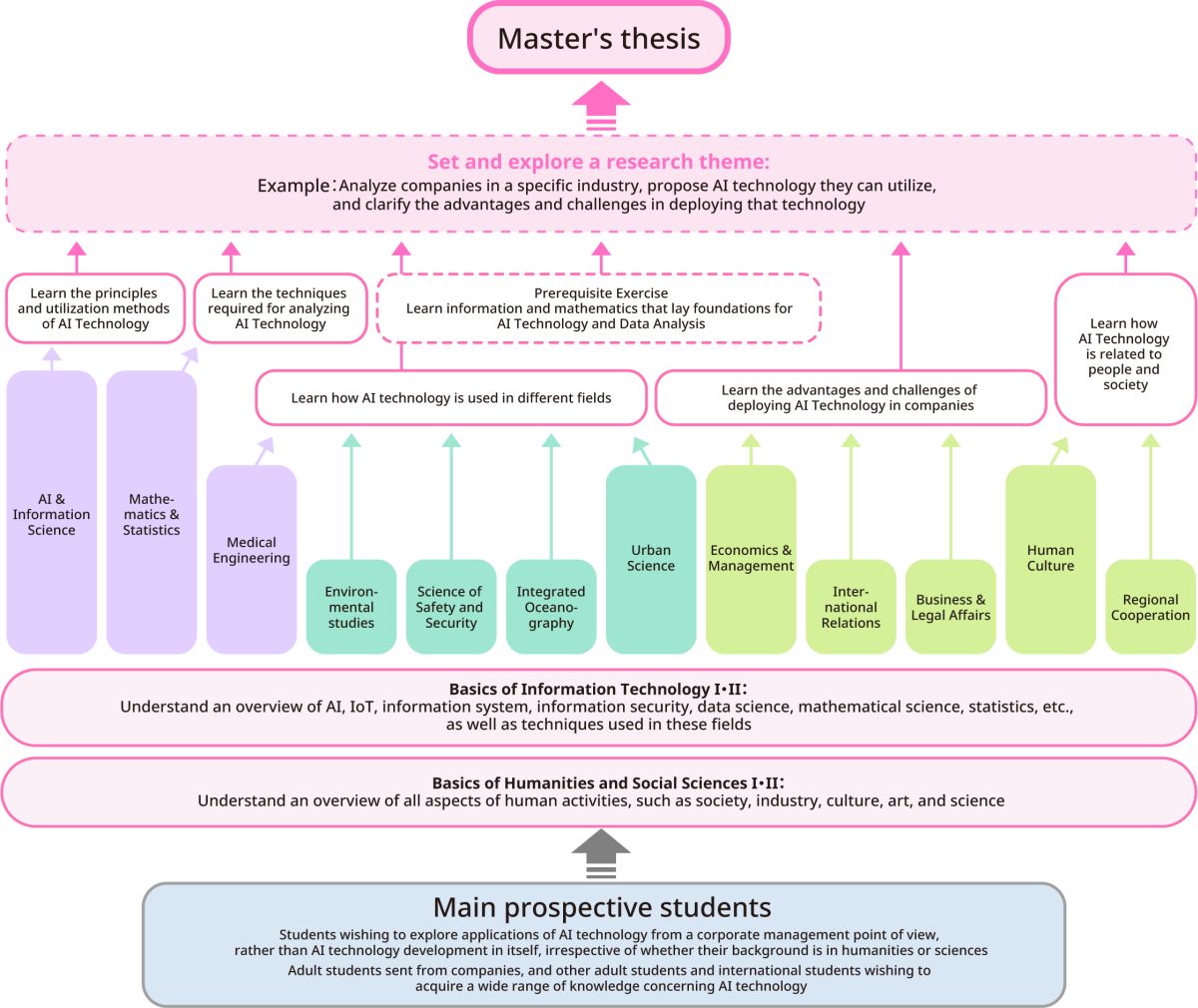Curriculum Outline
The Interfaculty Graduate School of Innovative and Practical Studies provides a learning style in which students search the total collection of knowledge provided by YNU faculty members in over 500 courses for what they require for their own research themes and enroll in such courses. This vast range of courses is divided into 12 categories. Each student selects courses according to their research theme, designs their own personal curriculum, and creates a Master’s thesis by integrating and enhancing the knowledge gained through the curriculum.


① Selection of a Research Theme
In the Interfaculty Graduate School of Innovative and Practical Studies, students have the freedom to research whatever they choose as long as it contributes to the construction, maintenance, and enhancement of Society 5.0. However, to facilitate the selection of supervisors, research themes are broadly classified into the seven groups below. To be admitted to the program, applicants need to select one and complete an examination.
- Applied AI
- Social Data Science
- Risk Symbiosis
- Global Governance
- Mature Society
- Human Intelligence
- Yokohama Urbanist
② Course Registration
In this degree program, students do not register for courses according to a fixed curriculum; they select courses from among the over 500 specialized lecture courses provided by the entire university depending on the research themes they have chosen. These courses are divided into the 12 categories below. When planning your course registration, you should select courses that lead to interdisciplinary learning that integrates humanities and sciences by consulting well with your supervisors while observing the course registration requirements set according to the characteristics of your own research theme.
For more information about the course registration requirements, please see the Course Registration Guidelines. Select courses you wish to take by referring to the information given in “3 Studies (2) Requirements for degree completion” and the “Course Registration Standards” and “Requirements for Issuing a Certificate of Completion” tables in the Course Registration Guidelines.
- AI & Information science : Learn examples of advanced AI and information technology.
- Mathematics & Statistics : Learn the mathematical and statistical basics that support data science.
- Medical Engineering : Learn how engineering technology and information technology are applied to medicine and other fields.
- Environmentology : Develop an understanding mainly of the natural environment and learn about natural disasters and how to construct a sustainable environment.
- Science of Safety and Security : Understand environmental, urban, and industrial risks and design safety and security accordingly.
- Integrated Oceanology : Put the diverse knowledge about all aspects of the ocean into practice in social action and regional cooperation.
- Urban Science : Learn about various cultural, social, and structure-related challenges involving people who operate the city.
- Economics & Management : Learn about corporate management and industry from the perspectives of economic management, economics, and business administration.
- International Relations : Deepen knowledge about international affairs and cross-cultural understanding and learn about related issues.
- Business & Legal affairs : Deepen knowledge about legal aspects of daily life and corporate compliance.
- Human Culture : Explore innate human abilities and deepen knowledge about society and cultural activities.
- Local Collaboration : Learn about community challenges and deepen knowledge about regional revitalization.
 This diagram illustrates how to register for courses using Applied AI as an example of a research theme.
This diagram illustrates how to register for courses using Applied AI as an example of a research theme.
③ Degree and Certificate of Completion
You can earn a Master of Philosophy degree by submitting a Master’s thesis that summarizes the research results that suit your research theme and by meeting the separately stipulated requirements for completion. You can also have a certificate of completion issued to validate your research theme by enrolling in courses to meet the requirements set for each research theme group and by meeting the requirements for earning the credits. A student can have certificates of completion issued for more than one research theme.
